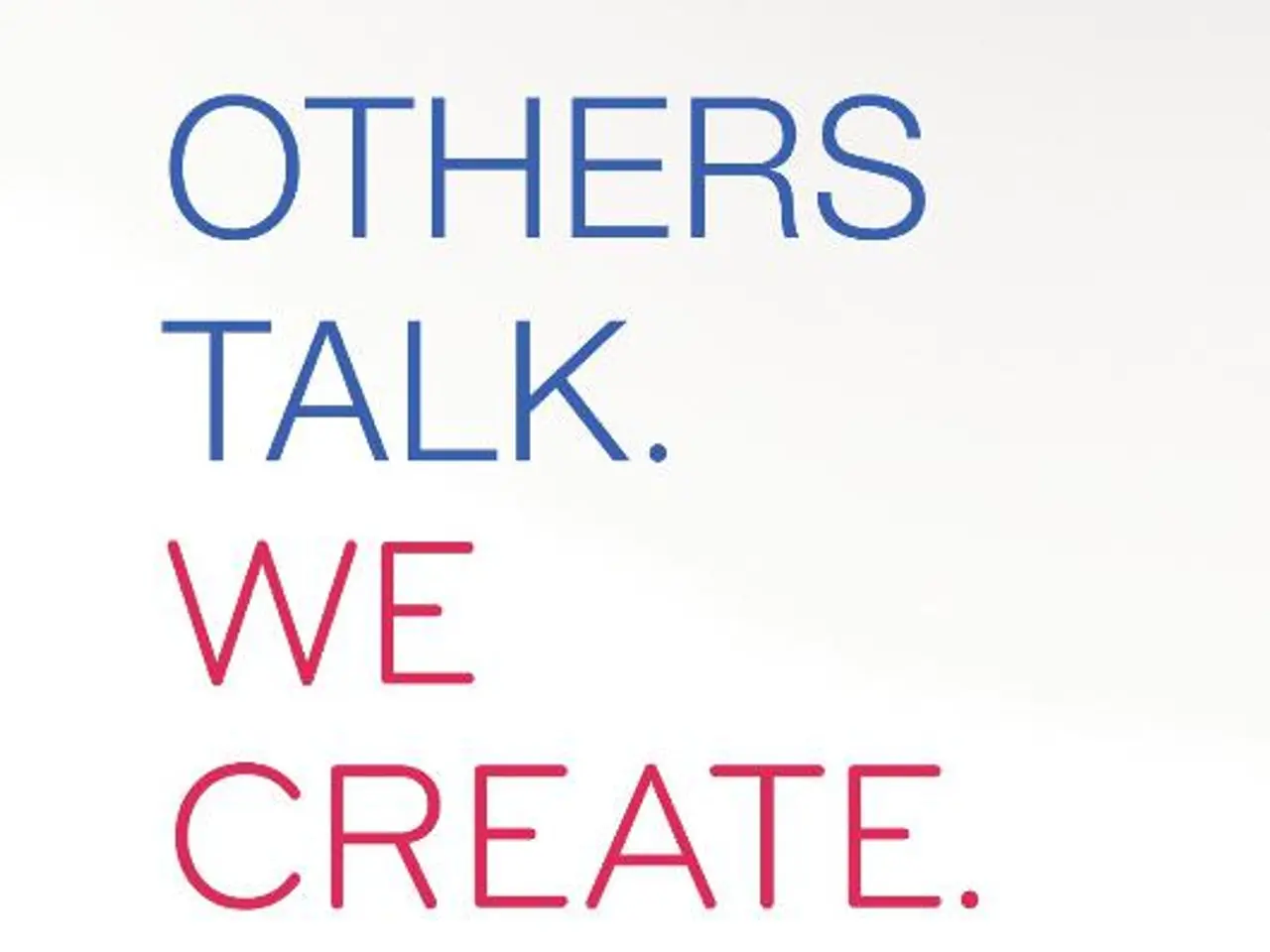Tear Down the Iron Curtain of Capitalism: A New Era for Fair Trade
Decision Time for the European Union: Shaping the European Union's Future
The ongoing trade battleadays appears to be just another chapter in President Trump's unpredictable script. But it also exposes the fault lines of free trade, hinting that the era of unfettered capitalism might be nearing its end. For all the hullabaloo about Trump's trade war, neither the scholarly free trade principles nor the World Trade Organization (WTO) offers a solution to America's ballooning trade deficit. The dollar's exchange rate should, in theory, adjust automatically, or wages should - but neither has happened since the last US trade surplus, which happened way back in 1991. And it's not just the US grappling with this issue - numerous developing countries are drowning in debt.
The WTO, the guardian of the rules of free trade, remains clueless on how to address the problem - whether it's for export champions or import heroes. The blame game could be targeted toward the US government in 1944, when it rejected British economist John Maynard Keynes' proposal for a balanced payment system. Keynes suggested a series of sanctions, including tariffs, exchange rate adjustments, or providing interest-free loans from surplus to deficit nations. Keynes' comprehensive, well-thought-out plan was rediscovered and admired by the Chinese central bank and a UN commission led by US economist Joseph Stiglitz after the 2009 financial crisis. Still, implementation has always proved elusive. Maybe now, the lucid idea will get a second wind - perhaps within an ethical world trade system that offers a lifeline out of the chaotic trade desert we now find ourselves.
Trade could transform into a means that serves the higher objectives of the world community - peace, democracy, human and labor rights, social security, and distributive justice, environmental and climate protection. The rules could be penned in such a way that countries and companies that champion these causes could trade more freely with each other than those who work against them. The United Nations (UN) could supervise the regulations, as the WTO was set up exclusive of these objectives. This approach has proven to be a dead end. A more sensible move would be to have the rules formed a) within the UN, and b) in keeping with the broader framework of international law. Countries that vow to protect human rights, the climate, and submit to the corresponding jurisdiction - akin to the previous WTO arbitration court that enforced trade, a means - would be rewarded. Whoever wants to export more must act peacefully, democratize, and protect the climate.
Common Good Accounting - A New Global Market Standard
The notion that climate protection, social security, or higher labor standards constitute a competitive disadvantage is quickly becoming obsolete: those who want to play must raise the stakes. The same could be applied to corporations: along with financial balance sheets, a common good balance sheet or a sustainability report with quantifiable, comparable outcomes will be a prerequisite for participating in the global market. The better the balance sheet, the wider the market access.
An Ethical Trading Zone ("UNETZ") would be the third attempt to regulate world trade within the UN. It's high time to rewrite the rules of global trade to make it both economically and politically rewarding to protect the climate, human rights, social harmony, and world peace.
About the Author:
Christian Felber is a progressive visionary who pioneered the Economy for the Common Good, and currently co-authors the working paper "A New Paradigm for the EU's Global Trade Strategy" at the CBS International Business School.
(our website, tem) Do you consent to data processing by Outbrain UK Ltd to display this content?
Insights:
- Christian Felber's approach of Ethical Trade emphasizes the common good, ethical values, and sustainability over purely profit-driven trade.
- Key features of Ethical Trade include focusing on the common good, transparency and accountability, inclusivity and fairness, and sustainability.
- Ethical Trade aims to tackle issues such as child labor, unsafe working conditions, unfair wages, environmental harm, and wealth distribution imbalances.
- By providing advantages to countries and companies that adhere to the ethical trade standards, the approach can promote international cooperation, consumer trust, and conflict resolution.
The ongoing trade battle in the United States indicates a worsening paradigm of free trade, suggesting that the era of unfettered capitalism might be nearing its end. The scholar's free trade principles and the World Trade Organization (WTO) have failed to address America's ballooning trade deficit. In a new global market standard, the United Nations (UN) could supervise regulations, where countries that champion human rights, climate protection, and submit to the corresponding jurisdiction would be rewarded.
In a new era for fair trade, a common good accounting approach focuses on the common good, ethical values, and sustainability rather than pure profits. Companies could display their commitments to these values with quantifiable, comparable information on their common good balance sheets or sustainability reports to gain access to wider market opportunities.
The Ethical Trading Zone ("UNETZ") within the UN would be a third attempt to reform global trade, making it economically and politically rewarding to protect the climate, human rights, social harmony, and world peace. Christian Felber, the author, is a progressive visionary pioneering this approach and co-authoring a working paper on the EU's Global Trade Strategy.
In the realm of politics, the display of the general-news media on this issue shows that tariffs are one possible solution among others for correcting trade imbalances, with broader discussions revolving around tearing down the iron curtain of capitalism and moving towards a new era for fair trade emphasizing the common good.









